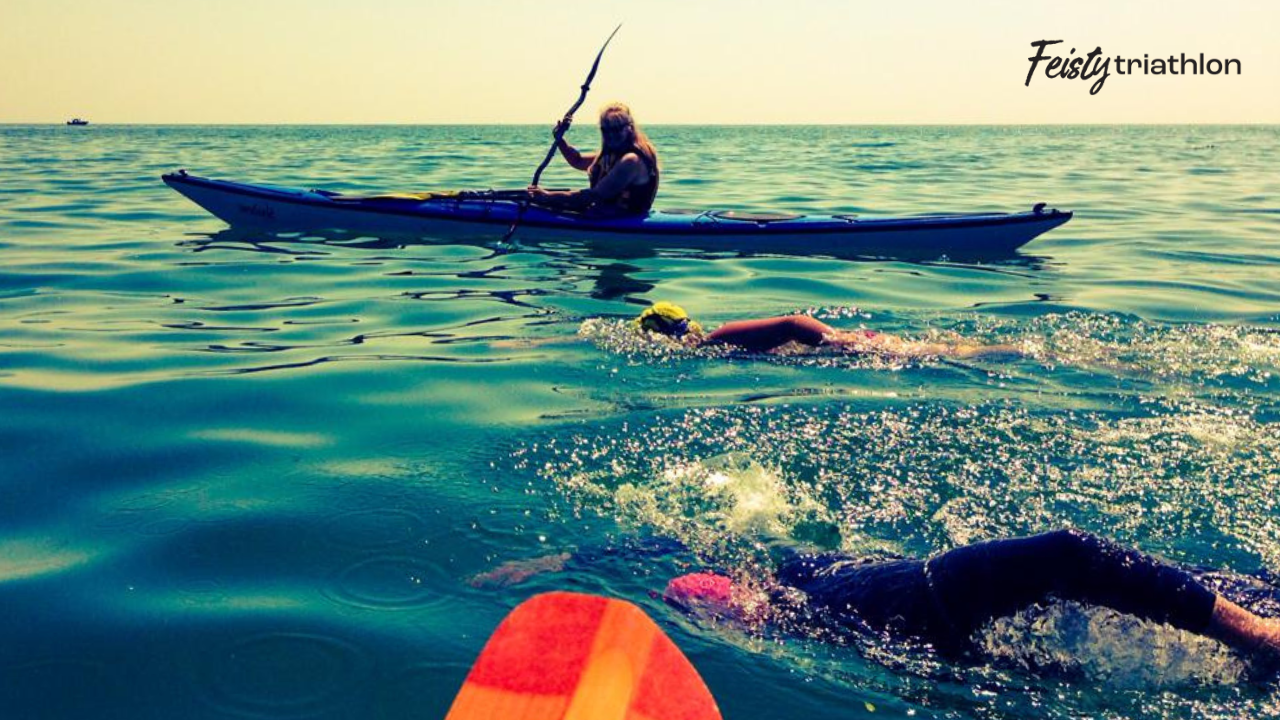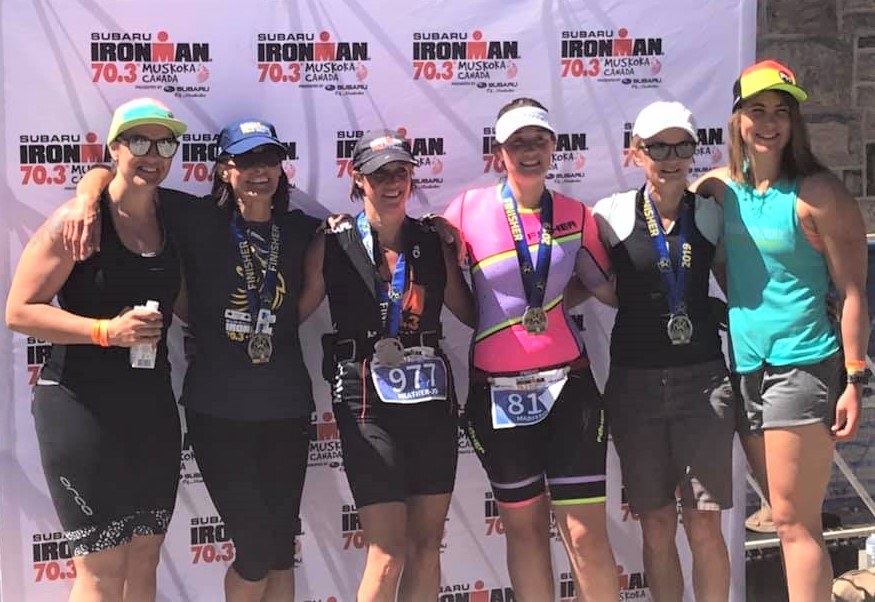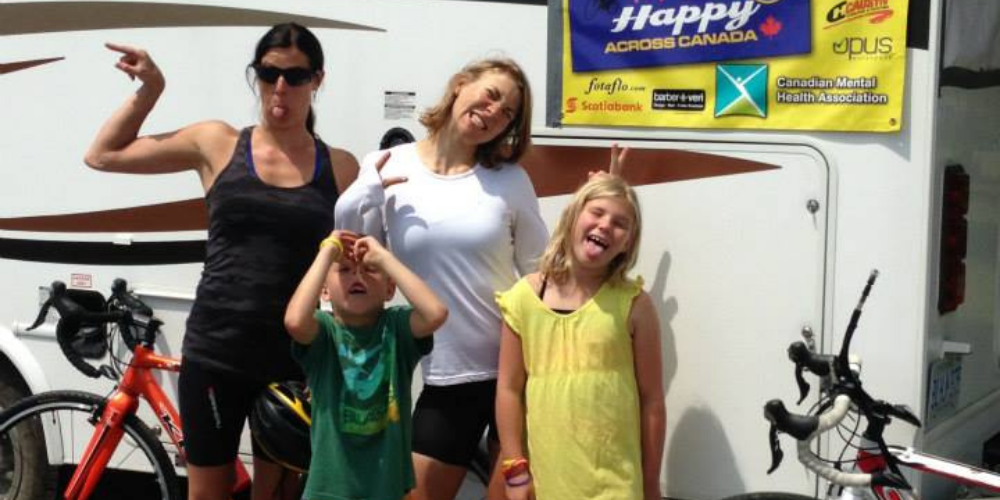
Vibe Check: Questions to Ask When Finding a Triathlon Coach
Jun 10, 2021Finding a triathlon coach can feel a bit like dating. Feisty writer, triathlete and occupational therapist Jessica VandenBussche has the questions to see if a potential coach passes the vibe check.
Text by Jessica VanderBussche
Thankfully, more and more resources are becoming available for coaching female triathletes. Not only are we accessing more appropriate evidence-based strategies for performance – it also seems that women are prioritizing our training and have more choices for qualified coaching. Now, we get to be a bit pickier when it comes to finding a good coaching fit.
So how does you choose the right triathlon coach?
Like many other things in life, it depends on the person and situation. Overwhelmingly though, both athletes and coaches suggest finding someone whose company you enjoy, who you feel good around, and with whom you can communicate well. Coach Jodie Becker from Ontario suggested “go with your gut. . . The other stuff will come...but you HAVE to have that solid relationship and open lines of communication as a foundation.” Professional ITU athlete Erica Ackerlund, and athlete/coach Jamila Gale-Agans both also gave this advice.
And how do you know if you vibe with a potential coach?
Have a chat. Everyone I chatted with stressed the importance of communication—given how important communication is, talking with a coach is usually necessary. If formal conversations are not your style though, you could also consider starting with group training, watching videos or reading articles by the potential coach, or joining a common social group to take some of the pressure off. That said, you will eventually need to be comfortable and vulnerable with your coach.

But, even if it seems good enough at the start, sometimes it doesn’t work out. Jamila shared an experience of having a poor fit with her coach. It happens. She mentioned that she started working with this coach because it was who her friends were using. Like all of us though, Jamila has her own needs and those ended up being different from her friends. She mentioned asking a lot of questions, and when the coach just was not available to answer those questions it eroded trust. Sometimes issues can be worked out but it's also important for both the coach and athlete to be selective in whom they work. In this case it was better for Jamila and the coach to part ways, and that’s fine too.
Other times, seemingly coincidental coaching relationships can ultimately work out very well. High-achieving in sport and career, yet flexible in her training regime, age-group athlete Julie asked a friend to coach her for a few months. A year later, she’s still working with the coach (Emma Briggs, who you can read more about here). Julie reported being pleasantly surprised, developing her confidence, and learning what she “didn’t know [she] didn’t know.”

Even though it is important to look for a coach who is a good fit, we can use other resources too. For example, maybe you really like how someone communicates and has sound technical advice, but they just are not familiar with the barriers you encounter. Or maybe you want more time to chit-chat and feel connected but it doesn’t feel right to use a coach that way. Jamila articulated how important social groups can be in this case to help with the nuances of having truly meaningful experiences within the sport of triathlon.
After conversations with both athletes and coaches, the anecdotal evidence suggests that finding a strong coaching relationship is a lot like other important relationships in life. (Dare I say romantic ones?) Rather than finding the “best” coach, it is more about connecting with a coach who is a good fit for you personally. There definitely can be a courting period and it's common to have a little friction at some point. Beware the red flags, but no need to look for perfection or to find everything in one person. Find someone you trust, whose skills are complimentary to yours, and with whom you can communicate well. Lastly, a coach will not replace your friends, so protect time for those social rides!
When it comes to picking the right tri coach, know that your gut is probably a good indicator. Also, feel free to pick and choose from the questions below when talking with potential coaches, which were compiled thanks to lessons learned from the following interviewees:
Emma Briggs, endurance coach
Erika Ackerlund, professional ITU athlete
Julie Ingwerson, age-group endurance athlete and sport medicine physician
Jamila Gale-Agans, age-group athlete and coach, Live Feisty community innovator
Jodie Becker, triathlete and coach
Ultimately, it’s important that you find a coach you trust and respect and can communicate openly with. This will build a strong foundation for your athlete-coach relationship, and allow you to get the most out of your coaching experience.
Questions to Ask a Potential Triathlon Coach
Created by Jessica VandenBussche, for Live Feisty Media, with input from the following:
- Emma Briggs, endurance coach
- Erika Ackerlund, professional ITU athlete
- Julie Ingwerson, age-group endurance athlete and sport medicine physician
- Jamila Gale-Agans, age-group athlete and coach, Live Feisty community innovator
- Jodie Becker, triathlete and coach
- Matt Dixon, via Purple Patch podcast, about performance in triathlon and daily life
Sample Questions for Yourself Pre-Interview:
What are my goals?
How much capacity, energy, and openness do I have for change at the moment?
What do I think I need in order to accomplish those goals?
What pragmatic factors do I need to consider? (e.g. Price range? Location? Schedule/Time zone?)
How do I prefer to communicate?
How do I act when I am stressed/uncomfortable? What do I need during those times?
What do I already know about this coach? (e.g. Demographic information, information found online or through others)
What are my assumptions about this coach/group?
What am I looking for in a coaching relationship?
Sample Questions for Potential Coach
How long have you been in the sport? How long have you been coaching? What did you do before? Are you coaching full-time?
What type of coaching do you offer? (Group? One-to-one? Virtual consultation? In-person sessions? Specialties?)
What is the cost of coaching? Is there room for negotiation?
How do you like to communicate? (Online training platform of choice? Email? Phone? In-person? Frequency and duration of conversations? Room for flexibility?)
How do you provide feedback? (Method, amount, blunt versus diplomatic, and general ratio of positive to constructive)
How do you prefer to manage conflict? (Conversation? Time to think?)
Tell me about your athletes? (Any familiar names? What are their demographics? Turn-over and injury rates? Common length of coaching relationship?)
What is the cost of coaching?
What perks are available from the coaching relationship? (e.g. Discount codes? Referais for other services? Communities? Event access?)
What do you expect from your athletes? How can I do my part to ensure a successful coaching relationship?
Sample Questions For Yourself Post-Interview:
How did I feel when meeting with this coach?
Were my assumptions accurate?
How difficult/easy was it to set up the meeting? Why?
Are their skills complimentary to mine?
Do I think I would be able to be honest with this person when things get tough? Why/why not?
Will I be able to learn from them (and potentially their other athletes)?
Pragmatically, does this relationship make sense?
Am I okay with the answers provided? What am I willing to compromise? What will I not compromise?
Why am I excited to work with this person/group?
What are my reservations?
Why might this relationship be challenging?
****
Jessica has been dabbling in triathlon for almost 10 years, along with other sports like hockey (her first love). She transitioned to structured triathlon training a couple years ago and is enjoying that process. Outside of triathlon, she works as an Occupational Therapist in Ontario, enjoys research, and promoting sustainable physical activity as a means toward mental health and vibrant communities. To her, it’s a way of showing love to the community she loves so much!
Get Feisty Triathlon straight to your inbox
Get the low-down on what's happening in the world of women's triathlon, tips & tricks to crush it on the race course and be the first to know about special offerings from our feisty sponsors.
We hate SPAM. We will never sell your information, for any reason.


